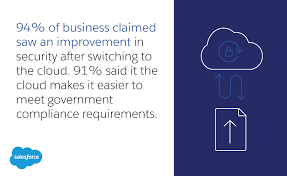TDX Announcements for Agentforce
Salesforce Expands Agentforce AI, Strengthening Its Lead in Agentic AI Salesforce’s latest updates to its agentic AI platform, Agentforce, are set to elevate its position in the competitive AI market, potentially outpacing enterprise application rivals and hyperscalers like AWS, Google, IBM, ServiceNow, and Microsoft. The updates, introduced under Agentforce 2dx, enhance orchestration, development, testing, and deployment capabilities. According to Arnal Dayaratna, vice president of research at IDC, these advancements could propel Salesforce ahead of its competition in a manner similar to OpenAI’s early dominance in large language models (LLMs). Agentforce API Expands Platform Extensibility A key enhancement in Agentforce 2dx is the Agentforce API, designed to improve extensibility and facilitate the seamless integration of agentic AI technologies into digital solutions. “Without an API, all AI agentic capabilities remain locked into the Agentforce platform,” explained Jason Andersen, principal analyst at Moor Insights & Strategy. “The API allows enterprises to build apps and agents with whatever they want.” Dion Hinchcliffe, CIO practice lead at The Futurum Group, sees this as a strategic move to drive adoption by removing usage constraints. While companies like Google and Microsoft have already introduced similar APIs, Salesforce differentiates itself by leveraging its deep CRM expertise, customer data, and business logic integration. “AI agents need contextual data to act effectively,” said Hinchcliffe. “While competitors will likely improve their integrations, Salesforce’s extensive background in business logic and automation will be difficult to match quickly.” Accelerating Enterprise Adoption with New Features Beyond the API, Agentforce 2dx includes enhancements like the Topic Center, MuleSoft integrations, Tableau Semantics, and Slack integrations, aimed at simplifying custom agent development, workflow integration, and deployment. Empowering Developers to Scale Agentic AI Salesforce is also focusing on developers with tools that provide greater control over agent creation, testing, and deployment. Key updates include: “Salesforce is encouraging hands-on experimentation, a strategy commonly used by cloud service providers,” said Cameron Marsh, senior analyst at Nucleus Research. Andersen sees this as a bold move in the SaaS market, positioning Salesforce as a direct competitor to Azure, AWS, and Google Cloud, which also offer developer-centric AI tools. Additionally, Salesforce introduced Testing Center, a low-code tool for enterprises to test agents before deployment. Scaling AI Agent Deployments with Confidence Hyoun Park, chief analyst at Amalgam Insights, emphasized the importance of these tools for scaling AI deployments. “One of the biggest challenges in agentic AI is simulating and testing interactions at scale,” Park noted. “With these capabilities, companies no longer need to manually test or build custom tools to manage AI agents.” Proven Market Traction Salesforce reports it has secured 5,000 deals with Agentforce, with customers like The Adecco Group, Engine, OpenTable, Oregon Humane Society, Precina, and Vivint already seeing immediate value. With Agentforce 2dx, Salesforce is reinforcing its leadership in agentic AI, giving enterprises more control, scalability, and integration capabilities to drive innovation in AI-powered automation. Like Related Posts Salesforce OEM AppExchange Expanding its reach beyond CRM, Salesforce.com has launched a new service called AppExchange OEM Edition, aimed at non-CRM service providers. Read more The Salesforce Story In Marc Benioff’s own words How did salesforce.com grow from a start up in a rented apartment into the world’s Read more Salesforce Jigsaw Salesforce.com, a prominent figure in cloud computing, has finalized a deal to acquire Jigsaw, a wiki-style business contact database, for Read more Service Cloud with AI-Driven Intelligence Salesforce Enhances Service Cloud with AI-Driven Intelligence Engine Data science and analytics are rapidly becoming standard features in enterprise applications, Read more







